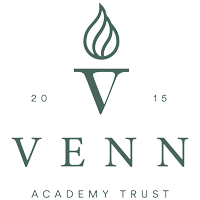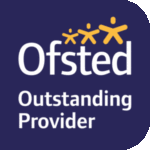Reading has an important place in education and in society. A high-quality education in reading will direct pupils to speak and write fluently so that they can communicate their ideas and emotions to others; being a fluent reader also allows others to communicate with them. Through reading, pupils have a chance to develop culturally, emotionally, intellectually, socially and spiritually. Literature plays a key role in such development. By continuing to keep a tight focus on reading throughout the pupil’s secondary schooling, we intend to impart pupils with the knowledge, understanding, confidence, attitudes, values and skills they need in order to reach their potential as individuals and to become literate members of society.
The Sullivan Centre is committed to raising the standards of reading for all of its pupils and keeps the teaching of reading at the core of its curriculum. It is important that all students develop the ability to read confidently and fluently to cope with the demands of everyday life as well as for pleasure. Our aim is to build literacy into all aspects of our curriculum and facilitate reading for pleasure amongst our students.
Teaching effective reading skills is not just the responsibility of the English team, but in all subjects where the students are expected to read. Reading steps are taken in order to developed skills and provide opportunities to acquire appropriate knowledge to make progress.
Reading at Key Stages 3 and 4 should be wide, varied and challenging. Pupils often come to The Sullivan Centre with gaps in their learning due to undiagnosed special needs or long-term school absence or are unable to read as fluently as their peers.
We use a wide range of strategies to enable them to make accelerated progress in order to read whole books, read in depth and to read for pleasure and information. We address long held negative attitudes towards reading and encourage pupils to find books and magazines they find joy in.
KS3
Pupils should be taught to:
Develop an appreciation and love of reading, and read increasingly challenging material independently through reading a wide range of fiction and non-fiction, including in particular whole books, short stories, poems and plays with a wide coverage of genres, historical periods, forms and authors.
Understand increasingly challenging texts through:
- learning new vocabulary, relating it explicitly to known vocabulary and understanding it with the help of context and dictionaries
- making inferences and referring to evidence in the text
- knowing the purpose, audience for and context of the writing and drawing on this knowledge to support comprehension
- checking their understanding to make sure that what they have read makes sense.
Read critically through:
- knowing how language, including figurative language, vocabulary choice, grammar, text structure and organisational features, presents meaning
- recognising a range of poetic conventions and understanding how these have been used
- studying setting, plot, and characterisation, and the effects of these
- understanding how the work of dramatists is communicated effectively through performance and how alternative staging allows for different interpretations of a play
- making critical comparisons across texts
- studying a range of authors, including at least two authors in depth each year.
In addition to group and 1-1 interventions, KS3 students also receive a weekly stand alone ‘reading’ lesson.
KS4
Pupils should be taught to:
Read and appreciate the depth and power of the English literary heritage through reading and experiencing a wide range of high-quality, challenging, classic literature and extended literary non-fiction, such as essays, reviews and journalism.
Understand and critically evaluate texts through:
- reading in different ways for different purposes, summarising and synthesising ideas and information, and evaluating their usefulness for particular purposes
- identifying and interpreting themes, ideas and information
- exploring aspects of plot, characterisation, events and settings, the relationships between them and their effects
- seeking evidence in the text to support a point of view, including justifying inferences with evidence
- distinguishing between statements that are supported by evidence and those that are not, and identifying bias and misuse of evidence analysing a writer’s choice of vocabulary, form, grammatical and structural features, and evaluating their effectiveness and impact
Some students in KS4 receive targeted support in groups and/or on 1-1 basis.
KS3 and KS4
All pupils at The Sullivan Centre obtain a reading age on entry to the setting after sitting baseline tests through the STAR reader programme. This determines the level of support required through our bespoke reading intervention. Support packages are then put into action to meet the needs of the student.
Our STAR reader baseline programme, provides our students with an accurate reading age based on the outcomes and answers they provide from the test. These are taken four times during the academic year: upon arrival in September, at the end of Autumn two and then twice more in the Spring and Summer, to measure impact.
Running alongside STAR reader, is the Accelerated Reader Programme which provides students with an IT based platform to quiz themselves on the texts that they have read. The objective being that the students will increase their reading age whilst nurturing their love of reading itself.
Our Benchmark Literacy Assessment provides pupils reading well below age related expectations with appropriate book banded reading material based on the outcome of their reading age results. Reading Intervention will then take place 1:1 with the student, with the focus on specific reading skills being demonstrated through a set period of time.
All of our teachers are responsible for the developing the love of reading. We recognise that reading occurs in many guises and therefore, we provide a wide variety of texts beyond the traditional written word, such as comics, song lyrics, magazines and a school subscription to newspaper, First News. Classroom bookshelves are regularly restocked and children may take books home if they wish.
Pupils take part in engaging and educational reading visits, which has included trips to see live theatre performances such as Romeo and Juliet and Private Peaceful to enrich our literary offer and we incorporate every opportunity to engage in literary celebration events such as World Book Day, Roald Dahl Day and National Poetry Day.






























































